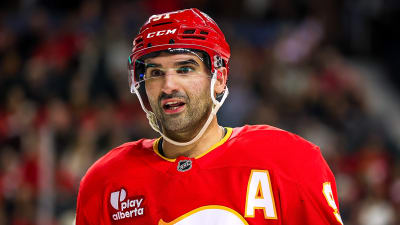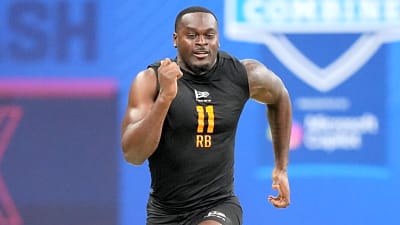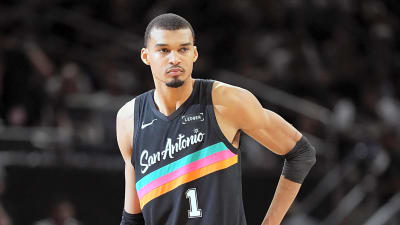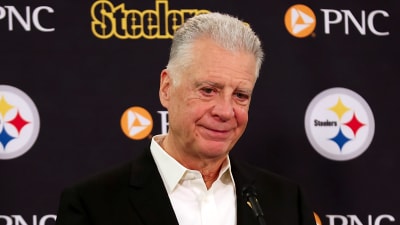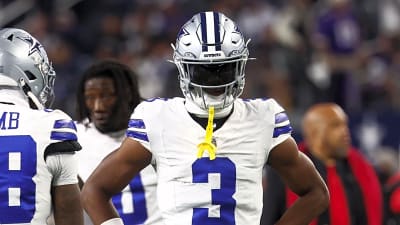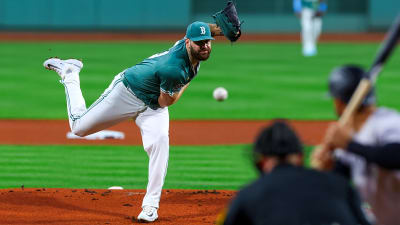Nothing gets NHL general managers into more trouble than the free agent signing period. In the hopes of getting the missing piece for their Stanley Cup puzzle, they are willing to pay whatever they have to for their player of choice. More often than not it results in a buyout or a trade just a few years later. Here we take a look at some of the biggest all-time busts and missteps in NHL free agency.
Christopher Szagola/Icon Sportswire
This is one of the strangest free agent signings of the modern era. Following the 2007-08 season, Finger was a 28-year-old defender who had played 94 mostly forgettable games in the NHL with the Colorado Avalanche. Despite that lack of a track record, the Maple Leafs, for some reason, still decided to sign him to a four-year, $14 million contract. Finger played two years with the Maple Leafs and never played another game in the NHL.
Rich Kane/Icon Sportswire
Chalk this one up to the risk that comes with free agency and the price you have to pay to get your player. Most of the times it is not worth it. Richards signed a nine-year, $60 million contract with the Rangers in the summer of 2011, and while he was a decent player in his first three years with the team, he did not come close to matching the price tag. His contract was bought out after three years.
Ric Tapia/Icon Sportswire
This is one of the many regrettable Rangers free agency contracts in the early-mid 2000s. New York gave Redden, then 31 years old, a six-year, $39 million contract in the summer of 2008. His production plummeted, and he was bought out after two seasons.
Jim Leary/Icon Sportswire
In the summer of 2007, the Rangers paid $51 million over seven years to snag one of the league's best playmakers from their archrivals, the New Jersey Devils. After two decent, but not great, seasons, the Rangers were desperate to shed his contract and traded him to the Montreal Canadiens. It actually ended up working out quite well because they received defender Ryan McDonagh as part of the trade.
Gavin Baker/Icon Sportswire
This contract was a bad idea the moment it was signed. Clarkson was a 29-year-old depth player who had one great season when the Maple Leafs signed him to a seven-year, $36.7 million contract. Making everything more absurd is the way the Toronto media hyped the signing — as if he was the second coming of Wendel Clark. He played less than two seasons in Toronto before he was traded to Columbus.
Fred Kfoury III/Icon Sportswire
After being a role player for most of his career, Beleskey had a breakout season in a contract year that saw him score 22 goals in only 65 games. It was a perfectly timed breakout, as it resulted in him getting a five-year, $19 million contract with the Bruins. It was not an outrageous contract, but it was an obvious misstep and one the Bruins eventually undid by trading him to the New York Rangers.
Robin Alam/Icon Sportswire
After being a backup and platoon starter for a few years, the Blackhawks went all in on Huet as their new starter when they signed him for four years and $22 million in the summer of 2008. After struggling for two years as the team's starter, he ultimately lost the starting job to Antti Niemi.
Jason Mowry/Icon Sportswire
Horton was one of the better power forwards in the NHL but struggled to stay healthy. The Blue Jackets still rolled the dice on the 28-year-old winger and signed him to a seven-year, $37.1 million contract. He played one season before having his career ruined and ultimately ended by injury.
Fred Kfoury III/Icon Sportswire
One of the many rules in free agency should be to never sign depth players to long-term contracts. The Florida Panthers violated that rule when they gave Bolland a five-year, $27.5 million contract. This was a guy who had scored 78 goals in nearly 400 career games at the time of the signing. He played only two mostly forgettable years for the Panthers.
Bill Streicher/Icon Sportswire
In the summer of 2011 the Flyers gutted their core to rebuild their team around Ilya Bryzgalov, hoping that he would be the long-awaited savior and solution to their goal tending problems. They gave him a nine-year, $41.8 million contract, and almost immediately Bryzgalov's career tanked and he was bought just two years later. The Flyers continued on with their revolving door of goalies for several years, hopefully now fixing it with Carter Hart.
Jeanine Leech/Icon Sportswire
Teams can sometimes get themselves in trouble by being too loyal to players they won with. Former Pittsburgh Penguins general manager Ray Shero was guilty of that in the summer of 2013 when he brought back Rob Scuderi on a four-year, $13.5 million contract. It was clear from the beginning that he was not a fit for the Penguins style of play or the new direction of the league. He was eventually traded during the 2015-16 season for Trevor Daley, a move that helped start the Penguins' run to back-to-back Stanley Cups during the 2015-16 and 2016-17 seasons.
Jerome Davis/Icon Sportswire
Back when every NHL team was trying to get bigger, tougher and more physical, the Bruins thought they struck gold with a four-year, $20 million contract with Martin Lapointe. It was a massive contract at the time and immediately backfired as Lapointe never produced the way he did with the Detroit Red Wings.
Jeff Speer/Icon Sportswire
The Canucks thought they were getting a legend and someone who could help transform their team into a champion. What they got was a declining veteran who was a shell of his former self, did everything he could to alienate himself from his new fan base and turned out to be one of the most loathed players in Canucks history.
Jeff Zelevansky/Icon Sportswire
This was a wild signing, as the Rangers gave Holik a five-year, $45 million contract in the summer of 2002. At the time Holik was regarded as great shutdown center and could bring some decent offense, but the Rangers were going to be paying him like a superstar. It was a wild overpayment that, as these signings almost always seem to, ended up with a buyout after two years.
Steve Ickes/Icon Sportswire
The Flyers signed Gratton as a restricted free agent, attempting to pry him away from the Tampa Bay Lightning with a five-year, $16 million contract that was heavily front-loaded with signing bonuses. The Lightning, unhappy with the offer sheet, attempted to trade Gratton to Chicago, arguing the trade had been completed before the Flyers' offer sheet. The league overruled that, and Gratton ended up going to Philadelphia with Mikael Renberg and Karl Dykhuis going back to Tampa Bay as compensation. The Flyers had no need for Gratton and after two years traded him back to Tampa Bay.
Matt Pearce/Icon Sportswire
Avery was known for being one of the NHL's biggest agitators and ended up being a divisive presence in the Stars' locker room almost as soon as he arrived. He played just 23 games after signing a four year, $15.5 million contract before being placed on waivers and ultimately reclaimed by the New York Rangers.
Jason Mowry/Icon Sportswire
This one is a classic case of a pretty good player simply getting overpaid in free agency. The Blue Jackets gave Wisniewski $33 million over six years in the hopes he would be the focal point of their defense. It never worked out as planned, and he was eventually traded to the Anaheim Ducks.
Dustin Bradford/Icon Sportswire
Smyth checked all of the boxes for a free agency mistake. He was a fine player, but his intangibles made him extremely overvalued and resulted in a five-year, $31.25 million contract in free agency. The Avalanche expected him to be a star, but he was only pretty good and not worth the salary cap hit. They traded him to the Los Angeles Kings after two seasons.
Tony Ding/Icon Sportswire
Souray could shoot the puck as hard as anyone in the NHL and was able to score some goals. Trouble is he was an all-or-nothing defender in the sense he did not really offer much defensively and never really became the player the Oilers hoped. His five-year, $27 million contract was bought out by the Oilers after four years.
Keith Gillett/Icon Sportswire
Leino had one decent season in the NHL before the Sabres gave him a six-year, $27 million contract, hoping he would become a consistent top-line player. He ended up scoring 10 goals in 137 games with the Sabres over three seasons before his contract was bought out.

 +
+


















